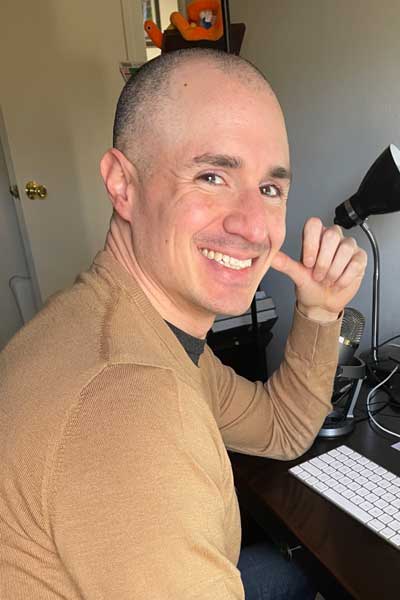
Gaston Ignacio Jofre-Rodriguez, Ph.D.
Jofre-Rodriguez is a biologist who specializes in evolutionary genomics and genomic signatures of speciation.
Gaston Jofre-Rodriguez, Ph.D., is a biologist who specializes in evolutionary genomics and genomic signatures of speciation. He is originally from Mexico City and obtained his Ph.D. from Texas A&M University, where he received the Distinguished Graduate Student Award for Teaching and Research. He recently completed a post-doc at UNC Chapel Hill.
Jofre-Rodriguez strongly believes that the teaching process must continuously adapt to provide an engaging learning experience in the classroom. His main goal as an educator is to facilitate student success by designing dynamic and stimulating courses that promote critical thinking and instill enthusiasm towards the biological sciences.
Q&A with Dr. Jofre-Rodriguez
Where did you grow up? Can you tell us a little about your educational journey?
I am originally from Mexico. I began my journey into Biology at UNAM in Mexico City. During my final years as an undergraduate, I became interested in animal behavior, I studied the effects of resource limitation in intra-species aggression (with charismatic hermit crabs). Then I studied my Ph.D. at Texas A&M University. I pivoted into evolutionary genomics and speciation using swordtails, endemic species of life-bearing fish, as a model system. I continued my trajectory into the genomic signatures of speciation during my postdoctoral tenure at UNC Chapel Hill. I pivoted from animals to fungi and studied the genetic boundaries between multiple populations of Histoplasma, an emerging pathogenic fungi that cause Histoplasmosis.
When did you first fall in love with your field of study? What made you decide to work in academia?
I fell in love with science during my last years as an undergraduate student through the process of answering these basic science questions: "Are hermit crabs with heavy and low quality shells, motivated to obtain a better resource? Will they show aggression and fight for a better shell against hermit crabs with higher metabolic competence?" Answering these questions entailed performing field sampling, literature reviews and data analysis.
Can you explain the focus of your research?
I study genomic signatures of speciation. Most recently, I studied fungi and the genetic boundaries between multiple populations of Histoplasma, an emerging pathogenic fungi that cause Histoplasmosis.
What attracted you to VCU? What are you most excited about in regards to VCU and Richmond?
The high diversity in the student population. As a Hispanic/Latinx, I will take an active leadership role in promoting diversity. Virginia Commonwealth University’s commitment resonates with my desire and responsibility to contribute as a Hispanic scientist and educator.
Can you talk a little about your teaching philosophy? What do you most like about teaching?
Active learning is among the most effective methods to build critical thinking. The ability to analyze and compare information, generate conclusions and form an opinion, is a critical component of college education. My role as a teacher is to design engaging activities that require students to analytically assess new information and inspire them to be curious about the material. With this goal in mind, I use a variety of active learning approaches in my courses: such as group discussions, think-pair-share and interactive hands-on activities.
I believe that teaching should also be dynamic. Each new semester the students enrolled in the course are different in terms of ways of thinking and personality, and their motivation and progress can also change during the semester. The group dynamics also differs profoundly among years. I celebrate these differences and strongly believe they have the potential of enriching both my teaching practice and the students’ learning experience. I keep my teaching strategies malleable, prioritizing students’ learning experience.
Can you tell us either a quirky fact about yourself or some of your hobbies?
A quirky fact about me is that I appeared in a Mexican novela as an extra. My hobbies are board games, photography, climbing and yoga.